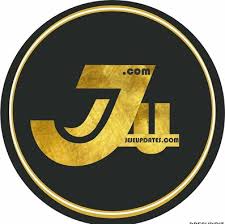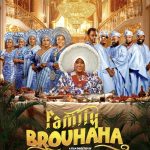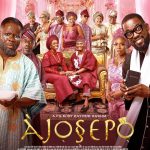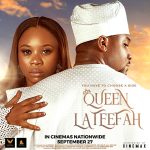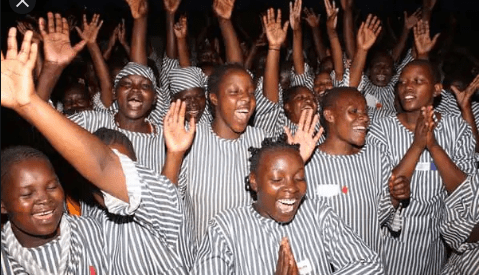As Nigeria prepares to hold elections on February 16, BBC Africa will be offering comprehensive coverage for its local and international audiences across Radio, TV, Online and Social Media.
As tens of millions of Nigerians visit the polls BBC Africa will be sending over 50 reporters to cover the elections-the largest deployment for an election coverage by an international broadcaster.

During the campaign period, there will be special programming across all BBC Africa’ s 12 language services including English, French as well as Nigeria based BBC News Yoruba, BBC News Hausa, BBC News Igbo and BBC News Pidgin.
A one day conference hosted by the BBC will look at the spread of fake news and its potential impact on the country’s elections.
Nigeria 2019: Countering Fake News starts on January 9 and is part of the BBC’s Beyond FakeNews season. Around the world, disinformation has been seen to cause social and political harm, with people having less trust in the news. This international anti-disinformation initiative will involve a keynote speech delivered by Prof.Yemi Osinbajo, SAN Vice President, Federal Republic of Nigeria.
It will be followed by a panel discussion hosted by the Publisher of Today’s Woman magazine Adesuwa Onyenokwe and will feature Mahmood Yakubu, Chairman of Nigeria’s Independent National Electoral Commission; Professor Wole Soyinka, Nobel Laureaute; Jamie Angus, Director of World Service Group; Funke Egbemode, President of the Nigerian Guild of Editors and Editor in chief, New Telegraph newspaper; and Uche Pedro, Founder of BellaNaija.
The Director of the BBC World Service Group Jamie Angus says BBC News pioneered fact checking programming in the UK.
“In 2018 I pledged that the BBC’s international services would move beyond just talking about the global ‘fake news’ threat. We commissioned in depth research that helped us to understand the processes and motivations behind ‘fake news’. We have taken action in Africa and in India to provide fact checking services that will help audiences to identify reliable sources and disinformation from fact.”
BBC Africa’s language services will host ten Governorship debates in Igbo, Hausa, Pidgin and Yoruba starting on January 10. Alongside this, a 30 day countdown will commence on January 17 and will offer infographics, explainers, in-depth analysis around key areas such as the economy, health, education, security, godfatherism, the female vote, how young people will vote and much more.
For the first time a pre- election fact checking project will aim to verify or debunk claims made by candidates. Audiences will be able to keep updated via digital and social media platforms. In addition Global Reality Check will be fact checking the various debates throughout the country.
BBC Africa will present election stories on all social media channels as well as dedicated digital videos on bbcafrica.com .
From February 4, each morning the global breakfast show Newsday (04:00-0800 GMT) will offer an insight into how Nigerians and people from various other parts of Africa view this momentous election. Focus on Africa Radio will be covering daily events around the country, asking: What does the future hold for Nigeria? You can listen daily at 15:00, 17:00 and 19:00GMT The BBC’s TV programme for Africa, Focus on Africa, available on BBC World News at 17.30GMT, will be live in Nigeria for two weeks. Both programmes will be analysing the media campaigns by candidates and bringing to you a variety of voices from across the country.
Fact Finder will present a special edition on the growing use of fake news in elections. The programme will be working with credible fact checking organisations to evaluate the veracity of claims and counter claims as well as pledges made through the Nigerian electoral period.
The women’s discussions programme #TheSheWord will record a special debate in Nigeria focusing on Women in Politics. It will be looking specifically at female candidates.
BBC’s Africa’s daily business programmes Money Daily, Mitikasi Leo (Swahili) and Cash Éco (French) will all air live from Lagos on February13, 14 and 15 ahead of the presidential election and after the poll. The special coverage will feature interviews with some of Nigeria’s most prominent entrepreneurs, economic analysts as well as ordinary citizens on what the election means for Africa’s largest economy.
The following daily TV news programmes which are rebroadcast by partner stations across Africa will also bring in-depth reporting around the elections: Afrique – BBC Infos, Hausa – Labaran TV, Swahili – Dira Ya Dunia and Somali – Caawa iyo Caalamka.
The Africa live page will be an important destination on February 16. Throughout the day there will be commentary and analysis from our correspondents across the continent and updates will continue daily as the results come in.
According to BBC’s Head of West Africa Languages Oluwatoyosi Ogunseye, they are prepared to deliver memorable coverage of what is set to be the most competitive election in Nigeria and even across Africa.
“Our audiences across the continent and around the world can now keep up to date with the action in twelve languages including English, Hausa and the newly launched Igbo, Pidgin and Yoruba languages. We will bring key interviews from politicians, commentators and viewpoints from voters on the ground. From every state, whatever the issue, BBC Africa will be there.”
Audiences will be able to keep abreast of the issues and results by following bbcafrica as well as the BBC’s language sites: bbcnewsafrique , bbc newsamharic , bbcnewsafaanoromoo bbcnewsgahuza , bbcnewsigbo , bbcnewshausa , bbcnewsPidgin , bbcnewssomali , bbcnewsswahili , bbcnewsyoruba and bbcnewstigrinya .
—BBC Africa
